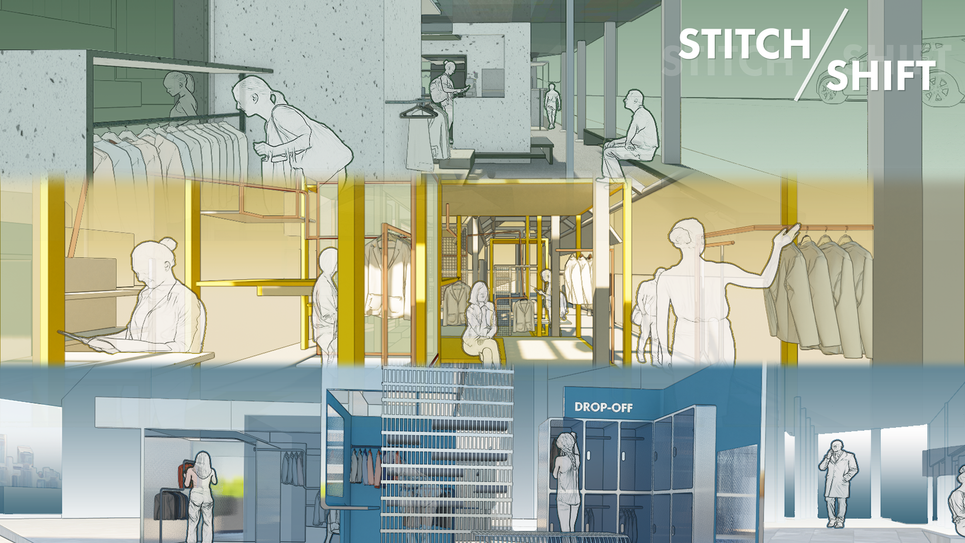Create Your First Project
Start adding your projects to your portfolio. Click on "Manage Projects" to get started
Stitch/Shift
- Project Description
Looking towards the future of fashion retail stores in light of unsustainable consumption habits and environmental concerns, Stitch/Shift looks toward a future where circular fashion experiences are part and parcel in our daily lives. Through piloting the project in key transit points like bus stops in residential, educational, and CBD areas, different formats of circular fashion are accessible and adaptable to a wider range of demographics, thus redefining and enriching the shopping experience.
In Singapore, the rise of unsustainable consumption habits and fast fashion has led to social and environmental concerns, overflowing our landfills and our homes. This speculative project hence reimagines the role of fashion retail by decentralising access and integrating circular fashion experiences into key transit points such as bus stops in residential, educational, and CBD areas.
Existing solutions in an attempt to prolong clothing lifespans are seen in Thrift Stores, where customers are encouraged to donate used clothing and browse through the second-hand clothing donated by others within the store. Alternative formats like clothing rental and subscription services have also been on the rise. However, solutions like that are limited in their outreach due to barriers like consumer stigma and lack of action.
From the trends and shifts in the retail landscape, key lifestyle shifts in fashion shopping have been identified, where the decentralisation and adaptation of stores in locations closer to consumers have been on the rise. Thus, the key idea of Stitch/Shift is envisioning retail fashion stores as an ecosystem of circular fashion programmes running throughout Singapore, with activities like clothing swaps, rental, and upcycling workshops along community and transit points. Each node of this ecosystem is tailored to its surrounding context, whether it’s a community-driven clothing swap in neighbourhoods, curated outfit styling near schools, or a quick clothing rental service in business districts.
Through this identification of key scenarios, Stich/Shift looks toward mapping out a modular and adaptable framework for circular fashion engagement. This project doesn’t just imagine the future of retail, it designs for it and bridges lifestyle with transit locations to make sustainable fashion a part of our daily lives, contributing to our social fabric and a promising future.
LASALLE School of the Arts
Lew Xin Hui









